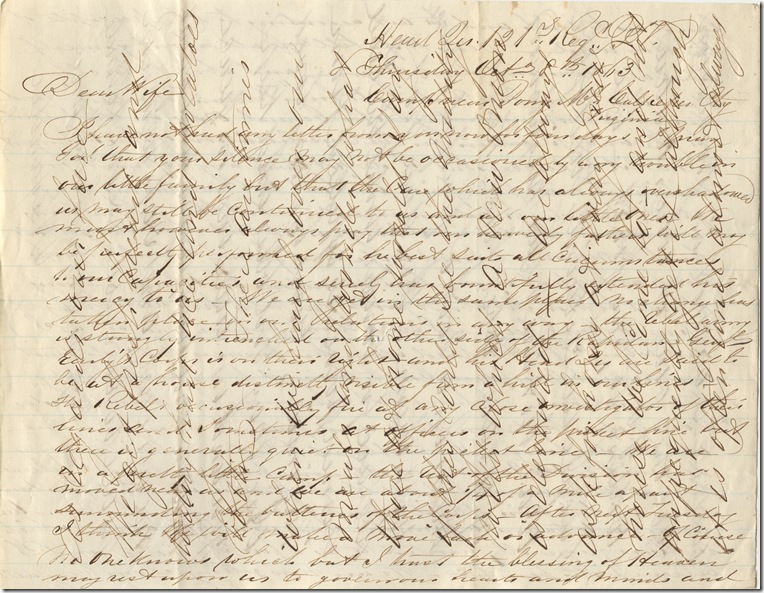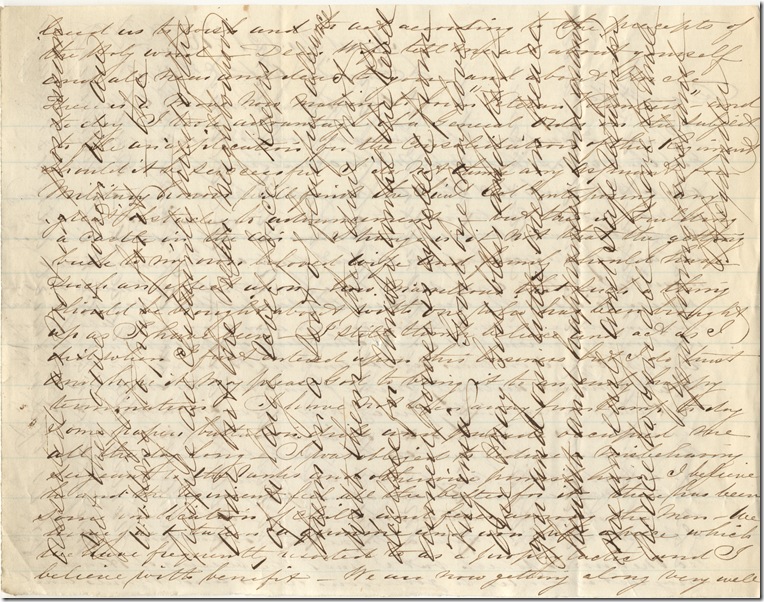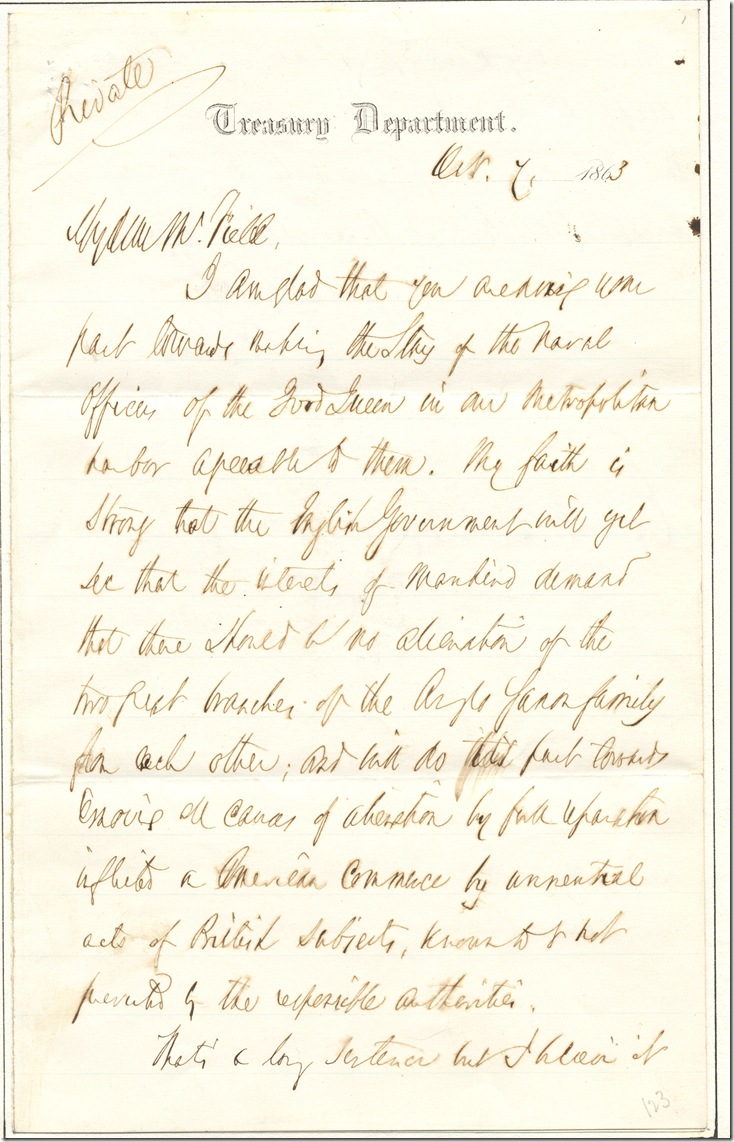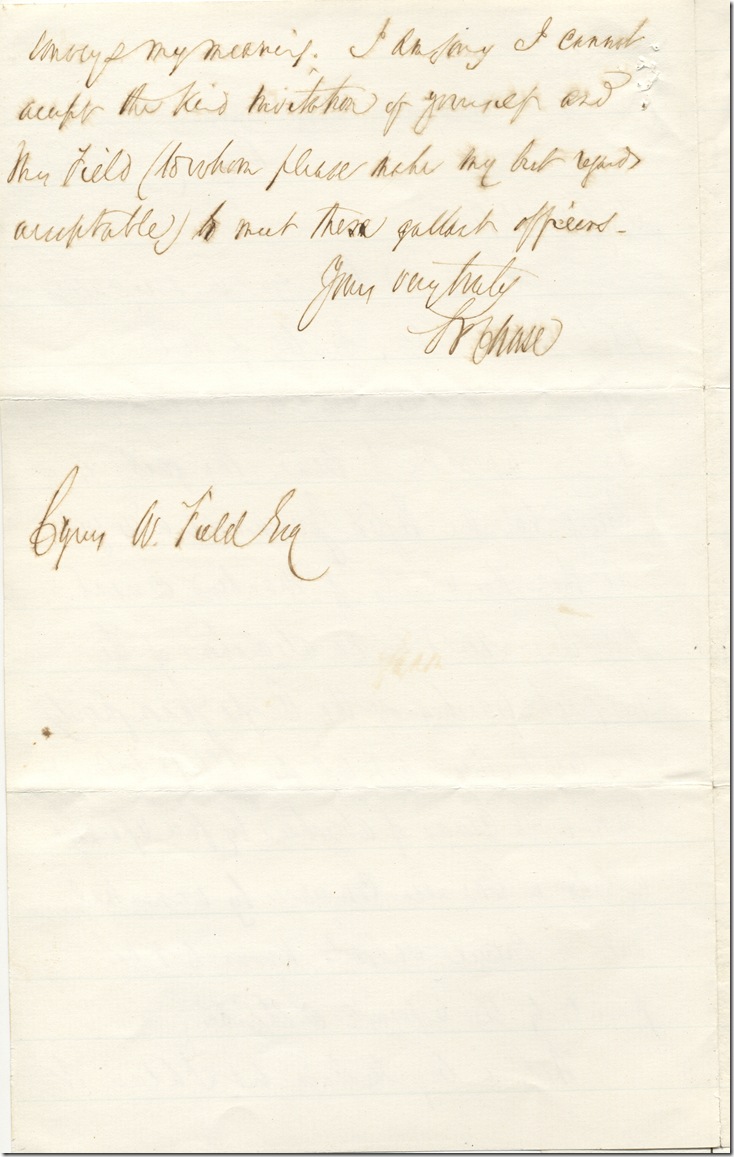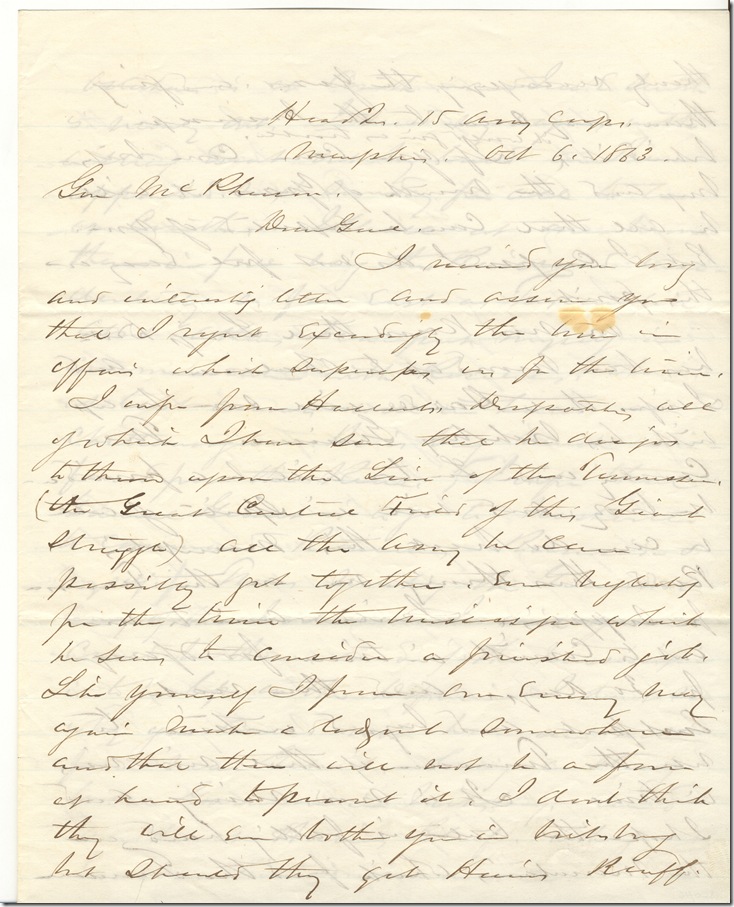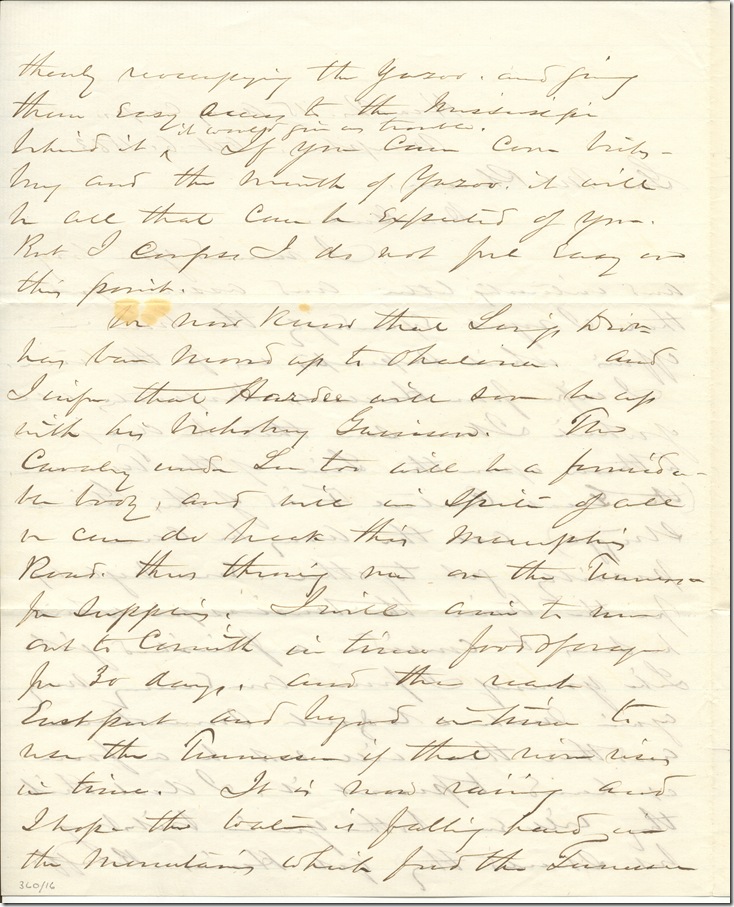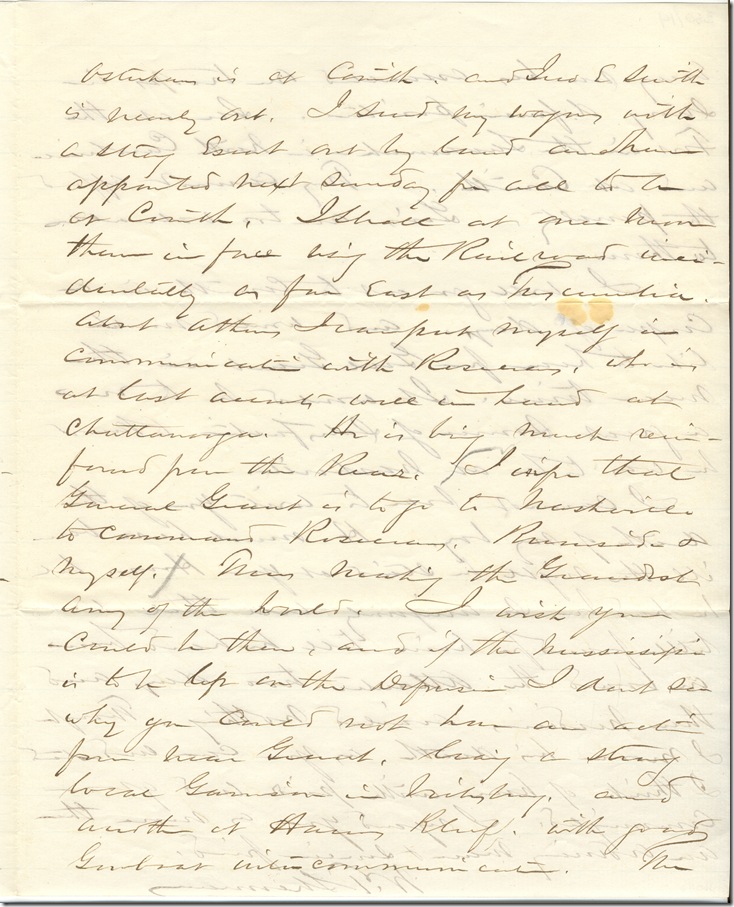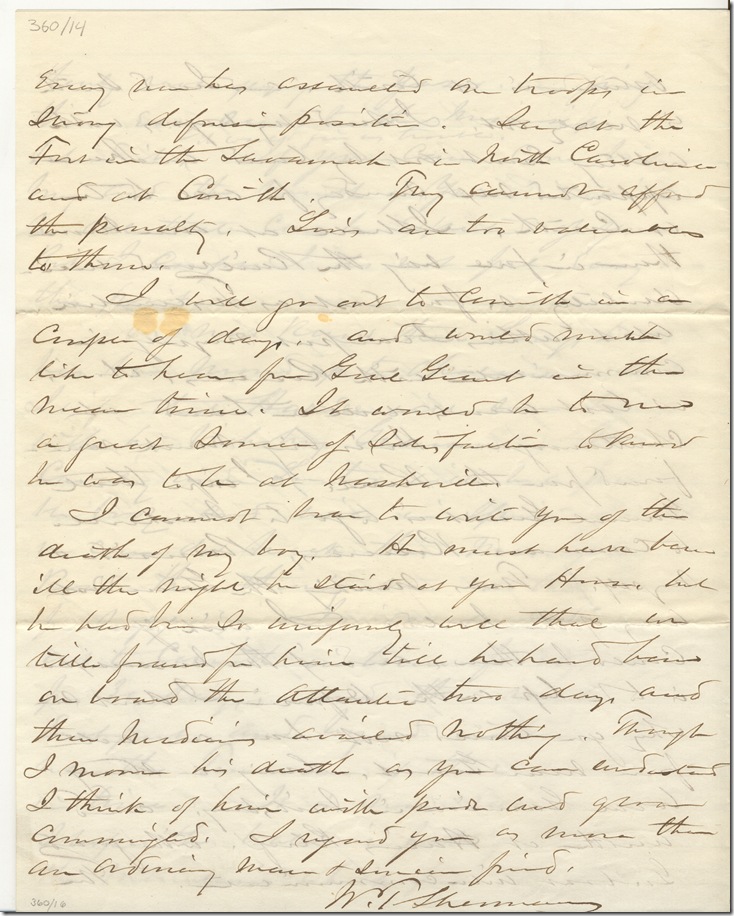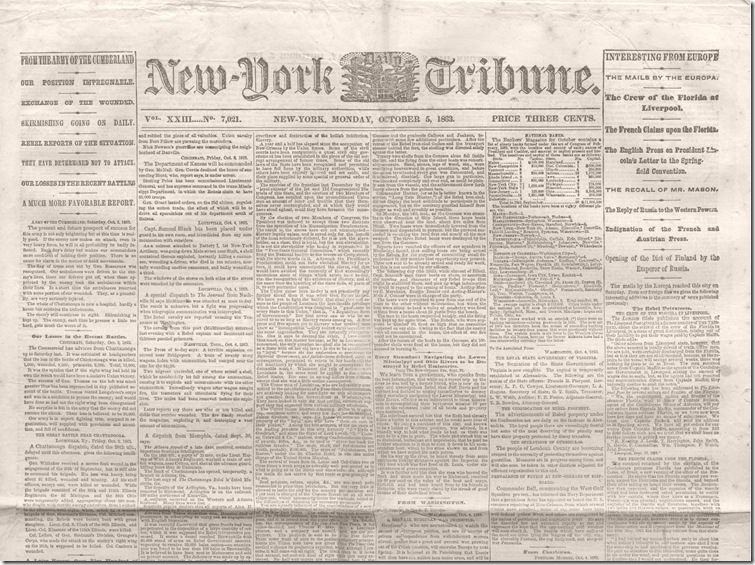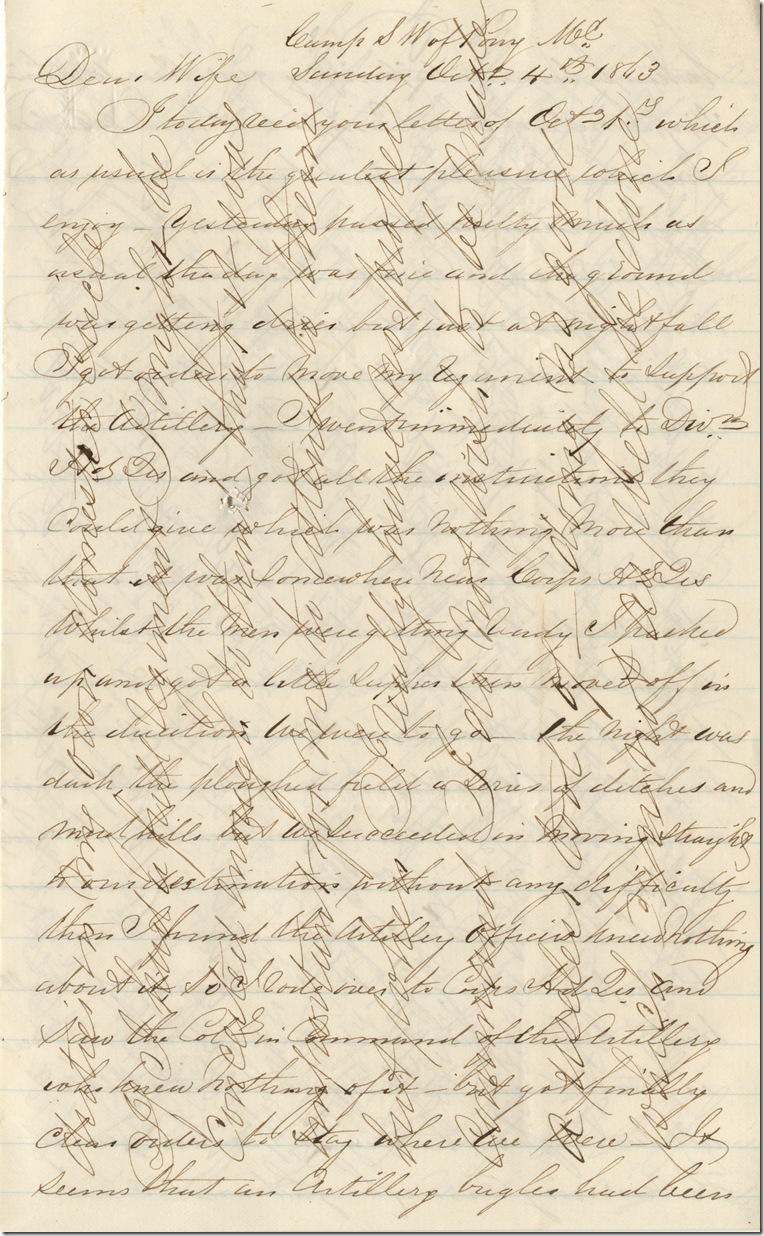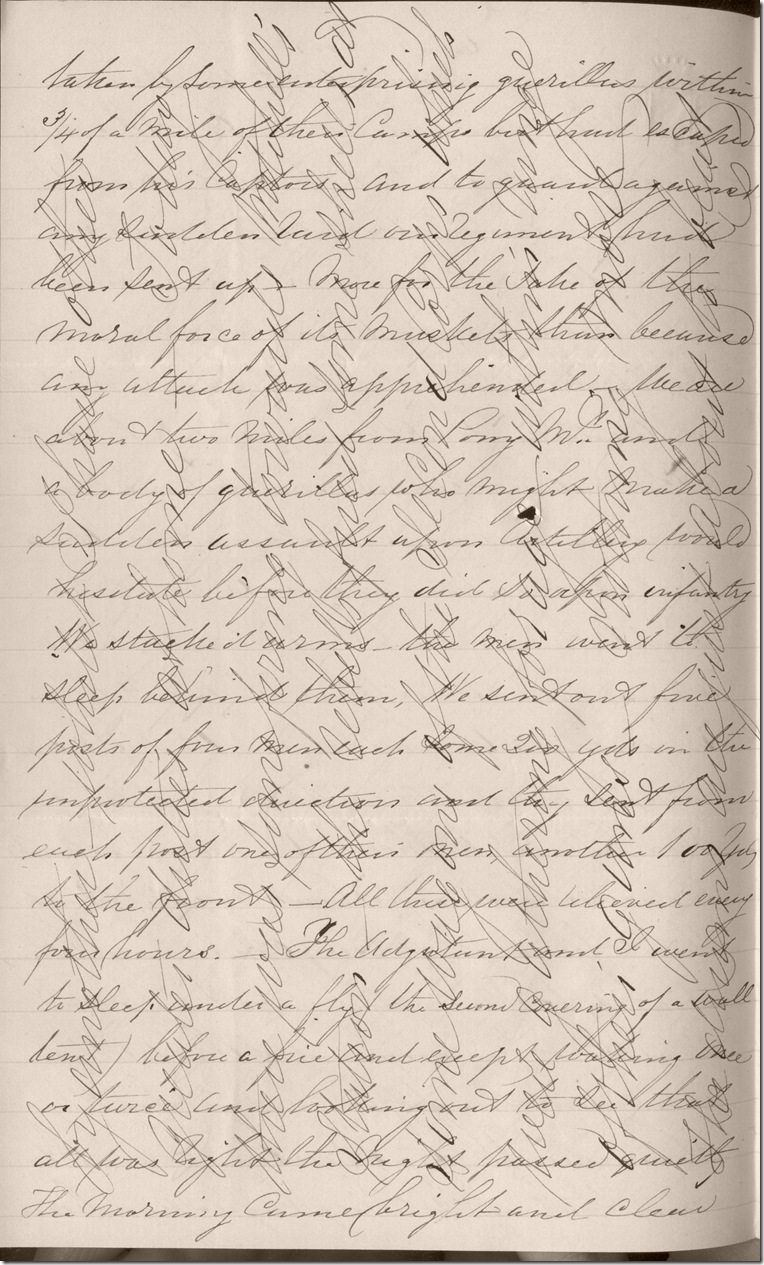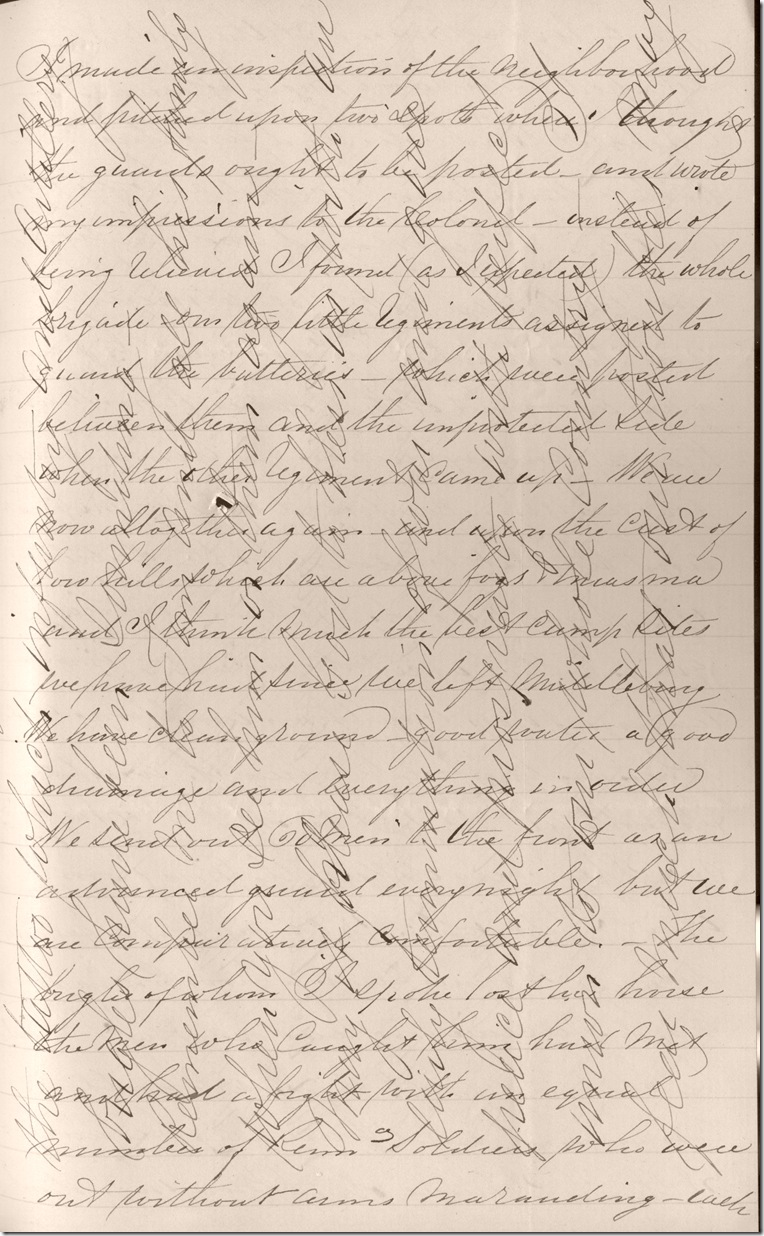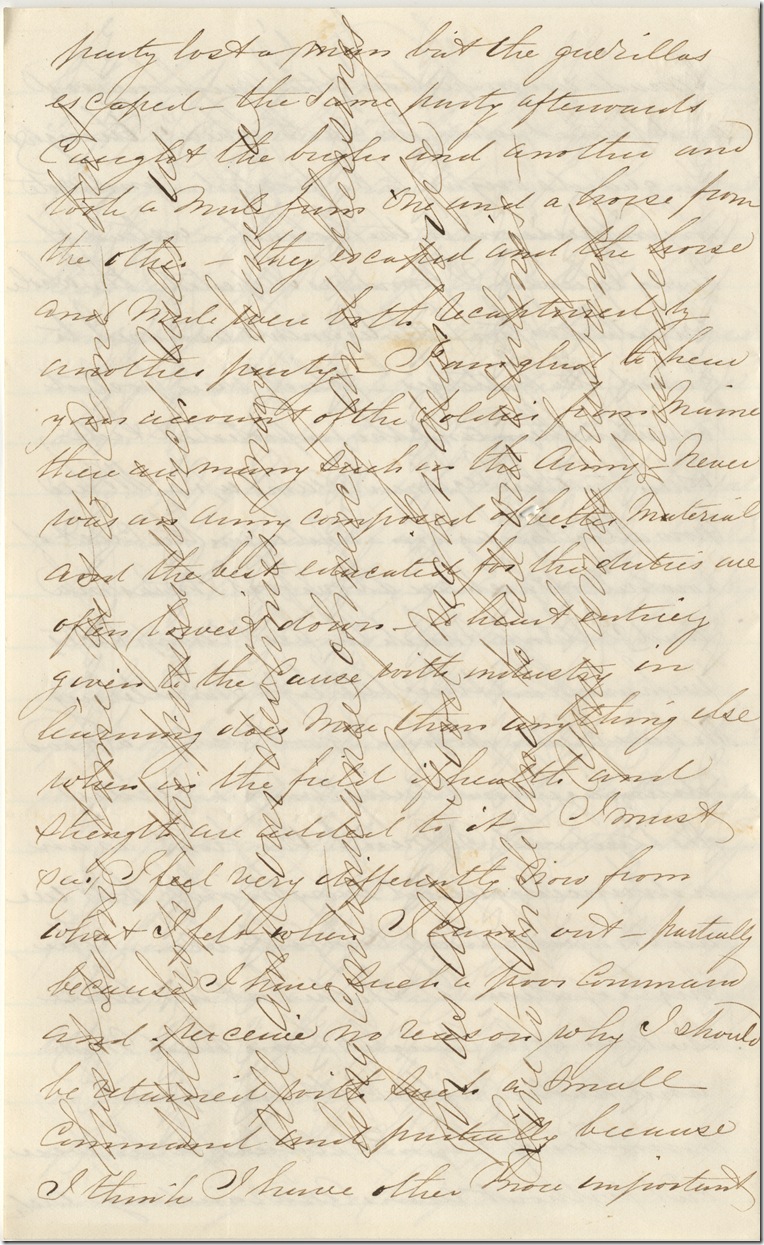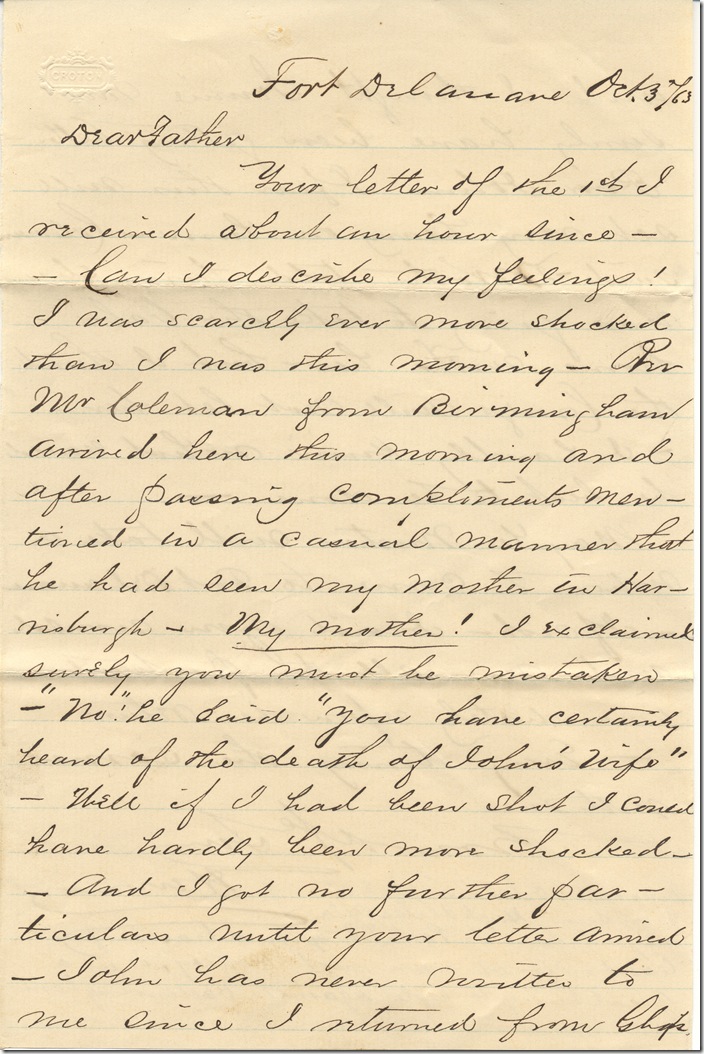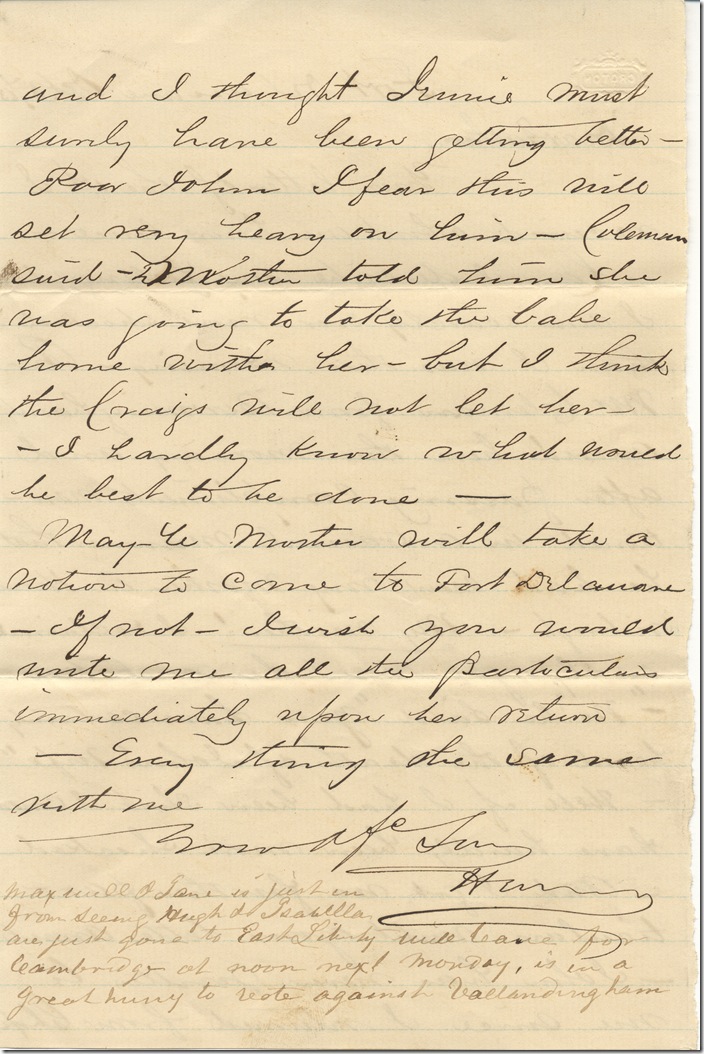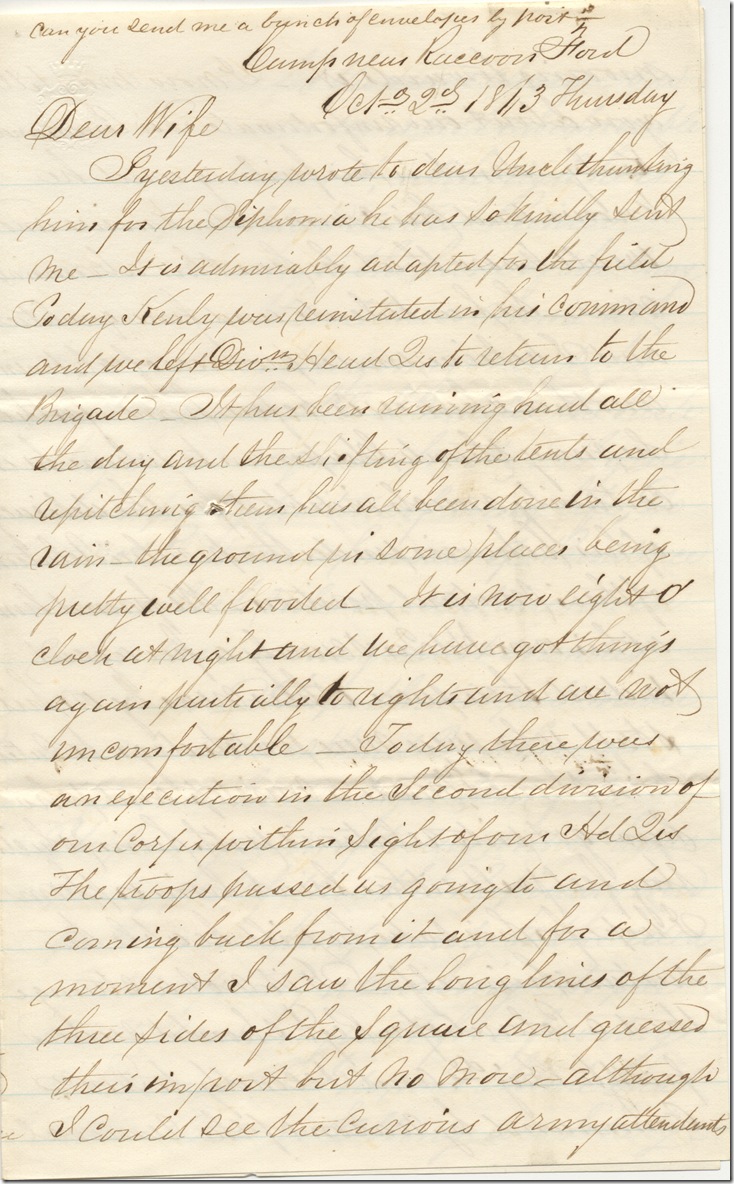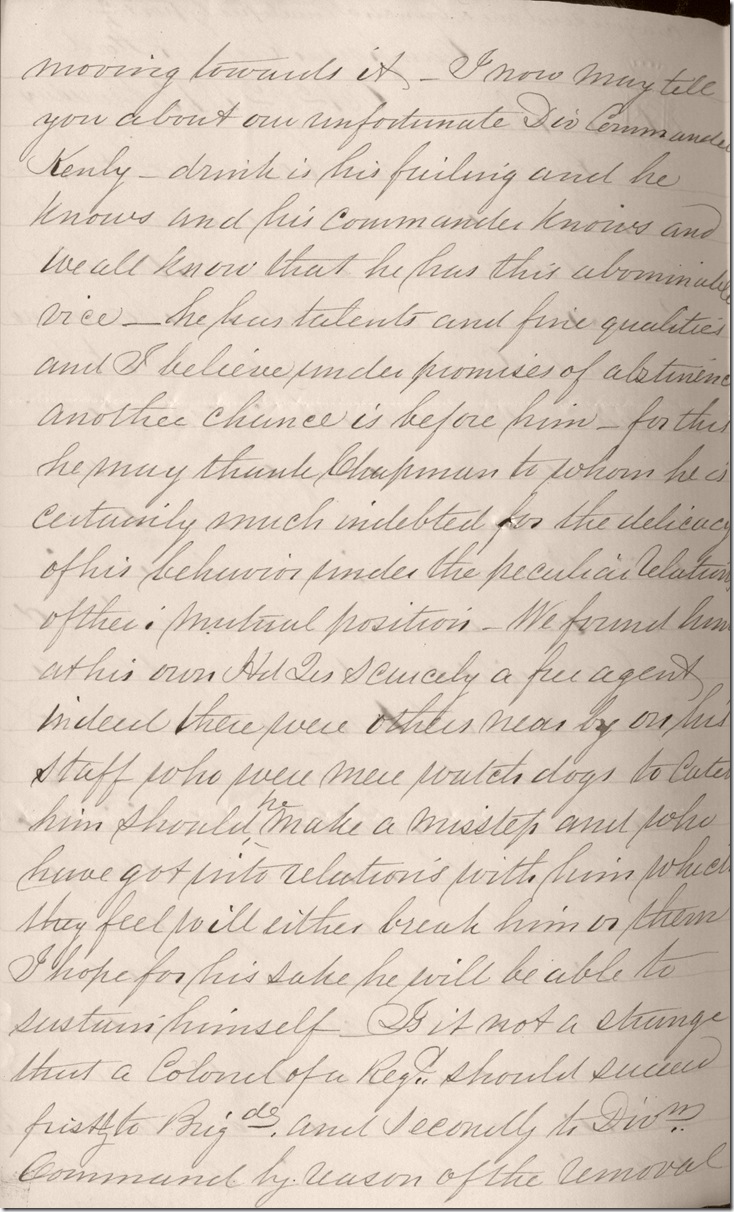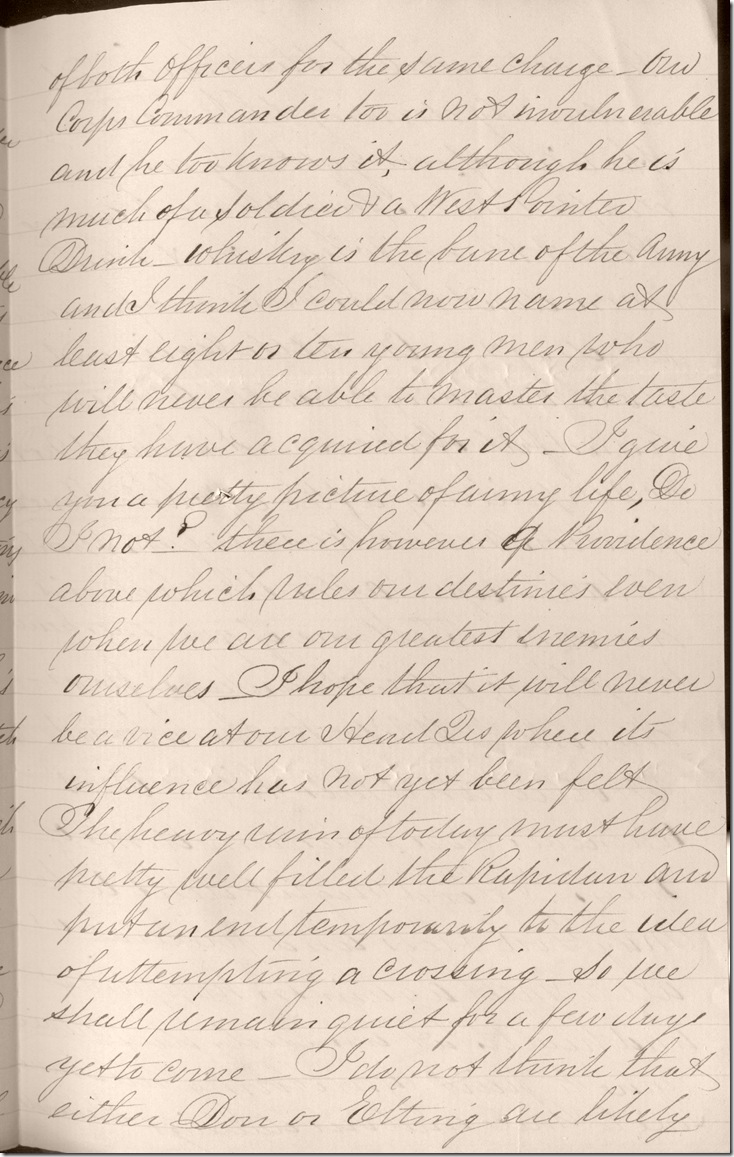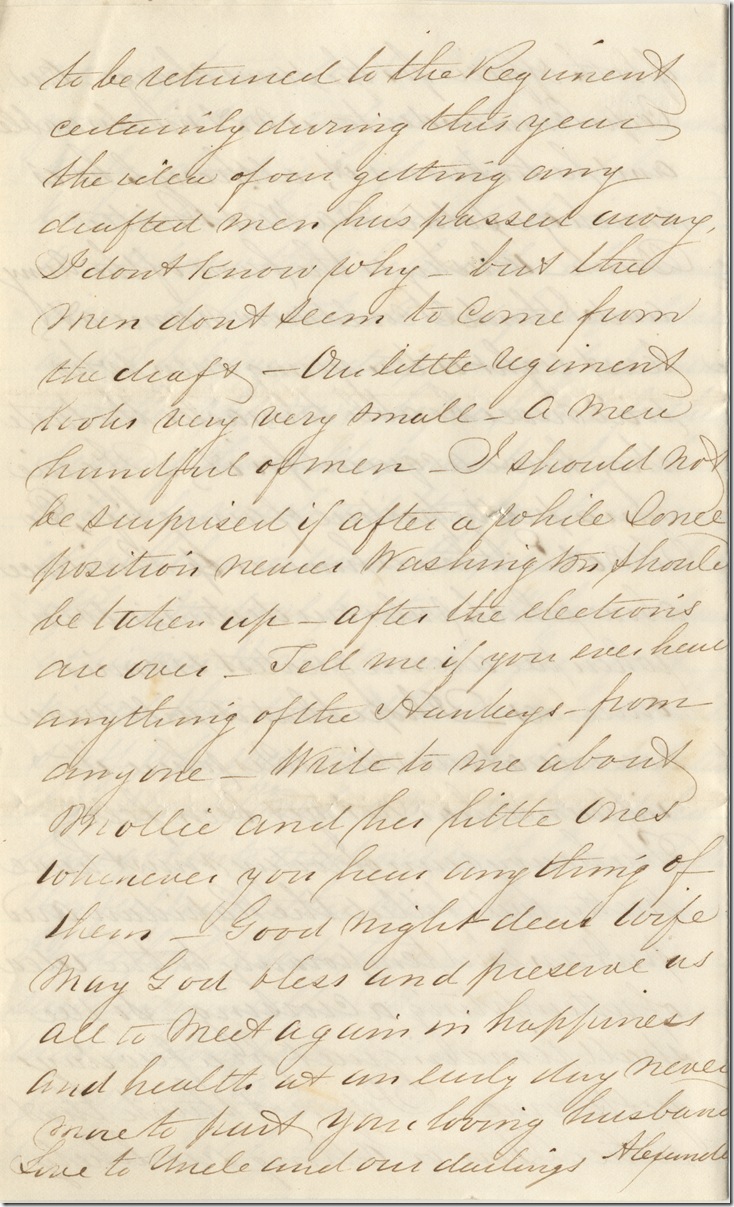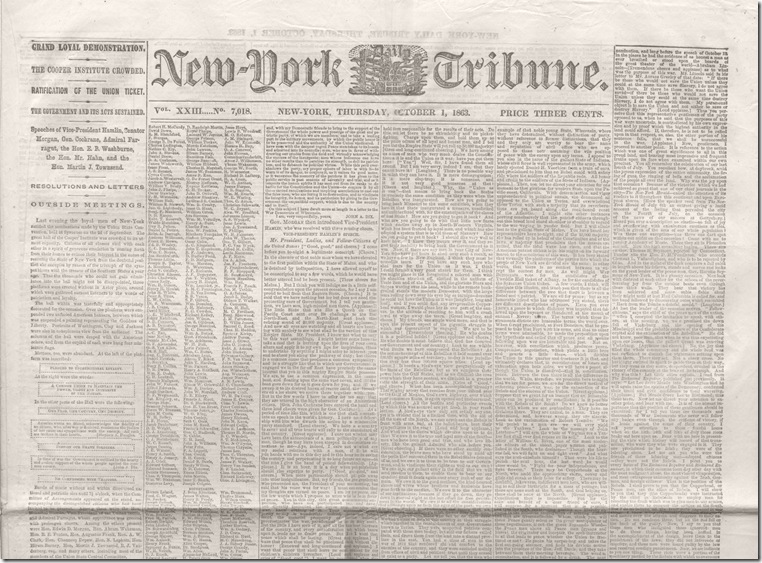Alexander Biddle was a member of the prominent Philadelphia Biddle family and was married to Julia Williams Rush, the granddaughter of Dr. Benjamin Rush. Biddle served with the 121st Pennsylvania Volunteer Infantry, beginning in September 1862. Starting out as a major, he would participate in Fredericksburg and Gettysburg, among other engagements, and would leave the service as a lieutenant colonel. (He was commissioned, but never mustered, as colonel)
Transcript (excerpt):
Head Qts 121st Reg
Thursday Oct. 8 1863
Dear Wife,
I have not had any letters from you now for four days. I pray God that your silence may not be occasioned by any trouble in our little family but that the Care which has always overshadowed us may still be continued to us and all our little ones. …We are yet in the same place , no change has taken place in our relations in any way. The Rebel army is strongly entrenched on the other side of the Rapidans Gap. Early’s Corps is on their right and his Head Qts are said to be at a house distantly visible from a hill in our lines. The Rebels occasionally fire at any close investigator of their lines and sometimes at officers on the picket line but there is generally quiet on the picket line. We are in a pretty little camp- the rest of the Division has moved near us and we are about ¼ of a mile apart surrounding the batteries of the Corps. After next Tuesday I think we will make a move back or advance- of course no one knows which, but I trust the blessing of Heaven may rest upon us to govern our hearts and minds and lead us to (push?) and to (not?) according to the precepts of the Holy Word. Dear Wife, tell me all about yourself and all near and dear to you and about Uncle. There is a move now making to form “Veteran volunteers” and today I took advantage of a general order on the subject to file an application for the Consolidation of this Regiment should it be successful. I do not think any aspirement for Military honors will find the Lieut. Col. interposing any great obstacle to advancement– but that is building a castle in the air—Strange is it not that the getting back to my own beloved wife and family should have such an effect upon– how marvellous that such a thing should be brought about with one who has been brought up as I have been. I still think, believe and act as I did when I first entered upon this business, but I do trust and hope it may please God to bring it to an early happy termination. I have not been far away from camp to day some papers, battalion drills and [illeg.] occupied me all the day long. I was obliged to reduce a misbehaving sergeant to the ranks and otherwise punish him. I believe he and the Regiment feel all the better for it. There has been some indications of chill and fever among the men. We have frequently accosted to as a justly lacks and I believe with benefit.
We are now getting along very well a regards our fare, we get fresh bread and today had rice and potatoes both. There are times when we laugh over our meals and wonder what those at home would say if they could see the avidity with which a raw onion is devoured. We always ask for honey at every new house we come to—and not infrequently get it although it is often and almost always asserted as not in possession. Yet they give it when we are willing to pay for it, the people are certainly tired of the war but the near neighborhood of a large Rebel force keeps them in a sort of fearful alliance with them. They dare not declare for Union until the Rebel armed power is expelled from Virginia. Good bye my loved one, may God bless and keep you and the our little ones in peace, health and happiness and grant me an early and safe return in peace to you all. Love to Uncle.
Your loving husband,
Alexander
Citation: Alexander Biddle (1819-1899), autograph letter signed to Julia Williams Rush Biddle, 8 October 1863. Rush IV:30:36
